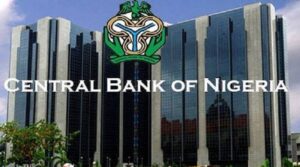Central Bank of Nigeria Orders Payment Providers to Track All PoS Transactions

Central Bank of Nigeria Orders Payment Providers to Track All PoS Transactions

Central Bank of Nigeria Orders Payment Providers to Track All PoS Transactions
In a significant regulatory move aimed at enhancing financial transparency and security, the Central Bank of Nigeria (CBN) has directed all Payment Service Providers (PSPs) and Payment Terminal Service Aggregators (PTSAs) to commence the tracking of all Point-of-Sale (PoS) transactions. This directive, issued via a circular dated September 11, 2024, mandates the adoption of stringent protocols to ensure that all transactions from PoS terminals are processed through certified channels.
The circular emphasizes the need for PSPs to ensure that their operations conform to CBN’s updated requirements, mandating the use of only licensed PTSAs to process PoS transactions. In line with this directive, the CBN has granted the Unified Payment Services Limited (UPSL) a PTSA license, solidifying its role in facilitating the aggregation of PoS transaction data across the nation.
The CBN’s move is part of its ongoing efforts to bolster the integrity of Nigeria’s payment systems, which have seen a dramatic rise in the volume of PoS transactions in recent years. The directive was issued to ensure that all PoS devices deployed at merchant and agent locations are technically standardized and are functioning in compliance with national and international payment standards.
Under this directive, all PoS transactions, whether on physical or electronic terminals, must be routed through CBN-licensed PTSAs. This standardization aims to enhance transaction transparency, improve data collection, and strengthen anti-fraud measures.
All PSPs are now required to use processors licensed by the CBN and approved by the applicable payment schemes to handle PoS transactions. This guarantees that only vetted entities are involved in the processing of transactions, ensuring a higher level of security.
The new regulations also impose technical and operational standards on PSPs, ensuring that all PoS devices are integrated with certified PTSAs. This requirement ensures that data generated from transactions are correctly channeled through the appropriate systems for monitoring and reporting.
The directive requires all PSPs, PTSPs (Payment Terminal Service Providers), and PTSAs to submit detailed monthly reports to the CBN. These reports must include data on the number of merchants and agents under their management, as well as the number of transactions routed through the respective PTSAs.
PSPs and other relevant financial bodies have been given 30 days from the date of the circular to regularize their operations and ensure full compliance with the new directives. This includes integrating their systems with licensed PTSAs and submitting a compliance notification to the CBN.
Failure to adhere to these requirements could result in significant regulatory penalties, as the CBN aims to strengthen the oversight of the financial industry. According to the directive, non-compliance will attract stringent consequences, which may include the suspension of operating licenses.
The introduction of these measures is expected to streamline the operational efficiency of Nigeria’s payment ecosystem. By ensuring that all PoS transactions are routed through certified aggregators, the CBN aims to foster greater accountability, reduce fraudulent activities, and provide more reliable transaction data. These initiatives are critical as Nigeria continues to push for a cashless economy.
MAKE MONEY ONLINE
The Nigeria Interbank Settlement System (NIBSS) and UPSL will play pivotal roles in this transformation. Their collaboration with other PSPs will ensure the smooth implementation of these new measures, facilitating real-time tracking and auditing of transactions. Additionally, the directive aligns with the CBN’s broader objective of reinforcing Nigeria’s digital payment infrastructure in the wake of increased electronic payment activity.
As this policy is implemented, PoS operators, merchants, and customers can expect changes in how transactions are processed. While the directive focuses on back-end changes aimed at enhancing security and transparency, its broader implications include the potential increase in transaction fees due to the cost of compliance for operators.
Several PoS operators across Nigeria have already started adjusting their fees in response to other CBN-related policies, such as the recently introduced N50 Electronic Money Transfer Levy (EMTL). This fee has prompted service providers like Opay and Moniepoint to increase charges on deposit and withdrawal services. While these developments may pose challenges for small merchants, the CBN maintains that the long-term benefits of transparency and security far outweigh the costs.
The CBN’s directive marks a critical milestone in Nigeria’s digital payment evolution, as it aims to foster greater trust in the nation’s payment systems. By ensuring compliance and setting higher standards for PoS transactions, the CBN is strengthening its commitment to promoting transparency and security across the financial sector. Payment providers are urged to swiftly comply with the directive to avoid regulatory penalties and contribute to the development of a more resilient financial ecosystem in Nigeria.
Do you find Tmaq Media useful? Click here to give us five stars rating!




















